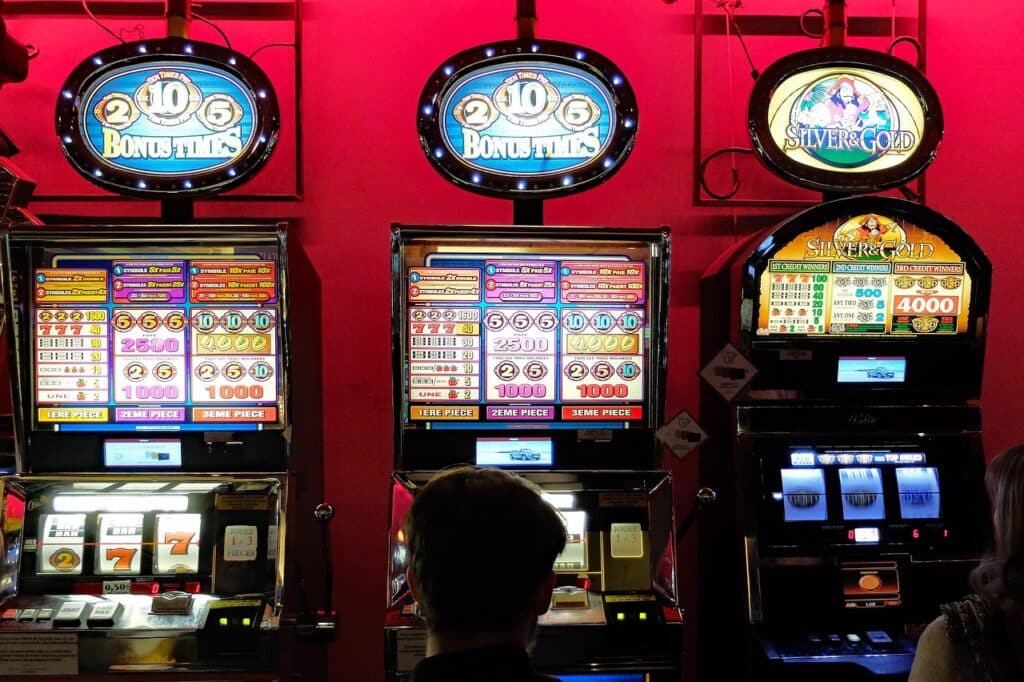A person engages in fraudulent gaming when they violate the regulations of a casino in order to gain an advantage. This includes equipment designed to interfere with the operation of a gambling machine, counterfeit gambling items, and the possession of any device that could facilitate fraudulent gaming.
Here are several gaming practices that will be labeled fraudulent.
• A person using a smartphone program that anticipates slot machine rolls.
• A person utilizes counterfeit chips or tokens for gambling.
• A person employs a device for card counting.
• A person cheats in blackjack by introducing concealed cards by sleight of hand.
• Possessor of loaded dice in a casino.
• A person creates and sells counterfeit casino tokens with the slogan “Casinos won’t know they’re fake!”
• Attempting any of the aforementioned actions.
There are numerous gaming behaviors that constitute fraud. If a person utilizes any means to get an unfair advantage in a casino game for himself or another player, they will likely be judged to have engaged in fraudulent gambling.
What legislation does New York have regarding fraudulent gambling?
New York has established a number of distinct laws criminalizing a variety of conduct. The majority of these laws prohibit the use, manufacture, or ownership of restricted items. A substantial amount of overlap exists between the statutes, meaning that a person may be charged with many crimes for a single act.
Fraud in the second degree in the gaming industry
To commit gaming fraud in the second degree, a person must alter a game in violation of the casino’s rules, such as by changing bets, increasing or reducing odds, etc., with the intent to deceive the casino. A person is also guilty of second-degree gaming fraud if he or she receives a benefit from a casino without placing an appropriate wager that would have prevented such a benefit.
First-degree fraud in the gaming industry
If a person satisfies the criteria for gaming fraud in the second degree and the profit exceeds $1,000, the crime will be elevated to the first degree. Also, if the person has been convicted of any offense involving gaming fraud within the past five years, it will be considered first-degree gaming fraud.
Utilization of phony, unauthorized, or illegal wagering tools
If a person employs counterfeit, unapproved, or illegal gambling instruments in order to participate in casino activities, this will be regarded the use of counterfeit, unapproved, or illegal betting instruments.

Manipulation of gaming results at a legal gambling facility
A person commits manipulation of gaming outcomes if that person:
• alters the game of chance by implementing or being allowed to use gambling items that are intended to deceive or change the outcome of the game;
• allows or implements materially altered gambling devices;
• allows or implements non-casino approved gambling items;
• alters the outcome of the game after the outcome is assured but before other players are aware of the outcome.
It is a class A misdemeanor for a first offense or an offense that occurs after five years of a previous crime. If a person has been convicted of this precise crime within the past five years, it is a class E felony.
A class A misdemeanor is punishable by a potential $1,000 fine and one year in jail, while a class E felony is punishable by a maximum $5,000 fine or double the amount acquired from the crime, and/or up to four years in prison.
Use of illegal gaming facilities
This is the simplest and most straightforward fraudulent gaming law. The use of illegal gaming equipment at a casino will be regarded the use of illegal gaming equipment. Unlawful gaming property is any item or equipment that is prohibited by the casino and affects the chance game.
The casino restricts the use of any application that would boost a player’s chances of winning. Kaden brings his smartphone to the casino, where he utilizes an app to help him win various card games. Kaden has engaged in the illegal usage of gaming equipment.
This is a felony of class E. This is punishable by a maximum fine of $5,000 or double the amount acquired from the offence, plus up to four years in prison.
The Law Office of Benjamin Greenwald is a criminal defense attorney in Orange County, NY. The firm has experience handling a variety of cases, including gaming fraud. Gaming fraud is a serious crime that can result in heavy fines and jail time. If you have been accused of gaming fraud, it is important to contact an experienced attorney who can help you defend your rights. The Law Office of Benjamin Greenwald has the knowledge and experience needed to help you fight your charges and get the best possible outcome for your case. Contact the firm today to schedule a consultation.
from Benjamin Greenwald Law Firm https://www.greenwaldfirm.com/casino-crimes/gaming-fraud-attorney-orange-county-ny/
via Benjamin Greenwald

No comments:
Post a Comment